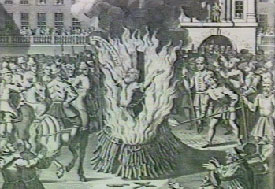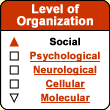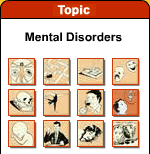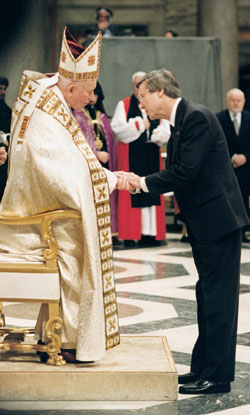|
|


A few centuries after
the death of Jesus Christ, there were many different sects
that considered themselves Christian. In the 4th century,
Emperor Constantine I centralized the authority of the Church
in Rome, thus rendering suspect all practices that departed
from the official state religion.
In the 12th century, the Catholic papacy created the Inquisition,
an ecclesiastical institution whose purpose was to arrest,
try, and sentence people who were guilty of heresy. In the
early Christian church, heretics had simply been excommunicated.
But with the establishment of Catholicism as the state religion,
heretics became regarded as enemies to be hunted down, tortured,
and killed. Sanctioned by all the popes of that time, the Inquisition
sowed terror across Europe throughout the Middle Ages.
|
|
|
| RELIGIONS: HELPFUL
TRANQUILIZERS, OR OPIATE OF THE PEOPLE?? |
|
In a sense, religions constitute a
symbolic, social form of therapy for the anixety surrounding
death. Historically, religions have unquestionably served the
same purpose as art: they have helped to satisfy the universal
human yearning for immortality.
|
|
It may seem
rather healthy for a community to develop a set of rituals
and beliefs that lets it deal with the trauma surrounding
the phenomenon of death. But when these beliefs become dogmas
that prevent individuals from accepting scientific knowledge
that might also relieve their existential anxiety, then these
beliefs become problematic.
This issue has led many commentators to make a distinction
between all the major faiths as embraced by the people and
the institutions that control the way these faiths are practiced.
Like all other power structures, these churches often claim
a monopoly on truth, enrich themselves on the credulity of
the people, refuse any dialogue with other faiths, and form strategic
alliances with the political powers that be.
In this sense, the institutionalized power of mainstream
religions is not very different from the power exercised
by cults.
It seems to be only a matter of degree that separates the
mind control imposed by cults from the dogma imposed by institutionalized
religions. In both cases, a privileged minority uses mental
manipulation to keep as many people as possible in a state
of dependency by depriving them of their ability to think
critically. |
Philosophers and free-thinkers have often
been the first to be tormented by the established religions of
their day. Wasn't it a plot between the religious authorities and
the Roman authorities that spelled the end for Jesus? And when
they realized that they had created a martyr, wasn't it the same
Romans who co-opted the figure of Jesus to build the Catholic church?
Religious texts have long been written in a language that was inaccessible
to the common people, such as Latin. The Church's relations with
science have scarcely fared any better, because science has called
the Church's dogma into question. Galileo, for instance, was forced
by the Church to recant his theories, and Giordano Bruno ended
up being burnt at the stake. Even today, in many U.S. states, the
theories of Darwin are being attacked by religious fundamentalists.
For some philosophers, such as Bertrand
Russell, the wars of religion and the Inquisition (see sidebar)
represent some of the most depraved chapters in human history.
Like Marx and Freud, Russell also believed that the churches
have always been the enemies of moral and human progress.
In short, though religious sentiment does answer people's profound
desire to comfort one another in the face of death, it has
always had a dark side as well: the manipulation of the masses
by a privileged few. |
|
 |
|
|






